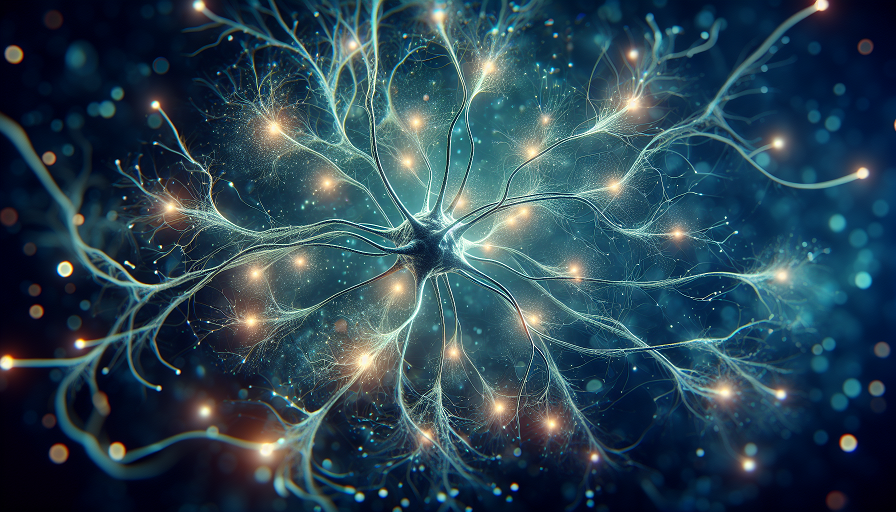
In recent years, the rise of nootropics has sparked curiosity in those seeking to boost mental performance. Often likened to the tools of a chess coach, these supplements are touted for enhancing strategic thinking and sharpening the mind. But what exactly are nootropics, and can they truly help you outthink your opponent on the chessboard—or in life?
Contents
Understanding Nootropics
Nootropics, sometimes known as “smart drugs” or cognitive enhancers, are substances that aim to improve brain functions like memory, focus, and creativity. Unlike medications designed to treat specific illnesses, nootropics are typically used by healthy individuals looking to gain a mental edge. This can be particularly appealing for students, professionals, or anyone involved in strategic activities like chess.
Types of Nootropics
Nootropics can be divided into several categories, each working in different ways to stimulate brain activity:
- Racetams: These are some of the most well-known nootropics. They affect neurotransmitter systems in the brain, which can lead to improved memory and learning.
- Cholinergics: These supplements focus on increasing acetylcholine, a neurotransmitter associated with learning and memory.
- Natural nootropics: Many options, like Ginkgo biloba or Rhodiola rosea, are derived from plants and are used to enhance cognitive performance with fewer side effects.
- Peptides: Although more controversial and less understood, peptides like Noopept claim to enhance cognitive abilities.
The Science Behind Nootropics
To understand if nootropics could be your new chess coach, it’s crucial to look at the science supporting these supplements. Still, research is ongoing, and while some studies show potential benefits, the field is not without skepticism.
Research and Findings
Various studies have been conducted regarding the efficacy of nootropics:
- Improved Memory: Some racetams have shown promise in improving memory functions in certain people by increasing blood flow to the brain.
- Enhanced Focus: Nootropics like L-theanine, often found in green tea, can enhance focus and reduce mental fatigue.
- Increased Neuroplasticity: Some evidence suggests that nootropics may support the brain’s neuroplasticity—the ability to form and reorganize synaptic connections.
Despite these encouraging findings, more extensive and long-term studies are needed to confirm these effects across broader populations.
Potential Benefits in Strategic Activities
If you’re considering nootropics for strategic thinking, like mastering chess, there are a number of possible benefits to consider:
Enhanced Problem-Solving Skills
Nootropics could help enhance your ability to solve problems by boosting focus and mental clarity. In strategic games, this can translate to quicker analysis of complex situations and crafting thoughtful responses to your opponent’s moves.
Improved Concentration and Focus
The ability to maintain concentration is crucial during strategic tasks. Nootropics that enhance neurotransmitter activity in the brain can help maintain focus over longer periods, an asset during extended chess matches or analytical work.
Balancing Creativity and Logic
While chess and other strategic activities rely heavily on logic, creativity is also essential in devising unexpected and innovative strategies. Some nootropics, like L-tyrosine, are thought to support creative thinking alongside logical analysis, offering a balanced boost to both areas.
Considerations Before Use
Before jumping on the nootropic bandwagon, there are several important considerations to keep in mind:
Potential Side Effects
While hearing the term “smart drug” might sound appealing, nootropics can come with side effects, particularly synthetic ones. These can range from mild issues like headaches and insomnia to more severe interactions with other medications.
Personal Variation in Response
The way an individual responds to a nootropic can vary widely, with some experiencing significant benefits and others noticing negligible or no effects. Trial and error can be necessary to find what works best for you.
Consulting Healthcare Professionals
Always consult a healthcare professional before starting any new supplement regimen, especially if you have pre-existing conditions or are taking other medications. They can help ensure that nootropics are safe for you and guide you toward the ones with the most reliable research backing.
The Future of Nootropics
As research into nootropics progresses, we may see more refined supplements with fewer side effects and improved efficacy. The future could bring a greater understanding of how these substances interact with various neural pathways, leading to more tailored and effective solutions for cognitive enhancement. This evolving science might expand beyond individual cognitive boosts, potentially offering broader applications in educational settings and workplaces.
Innovations on the Horizon
Emerging technologies like AI and advanced bioinformatics could revolutionize how nootropics are developed and personalized. With the ability to analyze genetic and metabolic data, future supplements could be custom-designed to fit individual neural profiles, maximizing benefits while minimizing risks.
Integration with Digital Platforms
As technology continues to integrate more seamlessly with daily life, we might see nootropics being paired with digital platforms that monitor cognitive performance, providing real-time feedback and adjustments. Apps designed to track mental sharpness and focus could offer insights on when and how to take these supplements effectively, optimizing their benefits.
The Verdict: A Supplement, Not a Replacement
In the competition between your mental acuity and the strategic prowess of a seasoned chess coach, nootropics may serve as a valuable supplement rather than a replacement. They can enhance certain cognitive functions necessary for strategic thinking. Yet, it’s important to remember that honing your skills in chess—or any strategic endeavor—requires practice, dedication, and a holistic approach that includes mental exercise, good nutrition, and rest alongside potential supplements.
As the science of nootropics continues to evolve, they indeed offer an intriguing prospect for enhancing cognitive capabilities. Whether they become your new chess coach or not, being well-informed and consulting experts can guide you in making the best decision for your brain health and performance.

